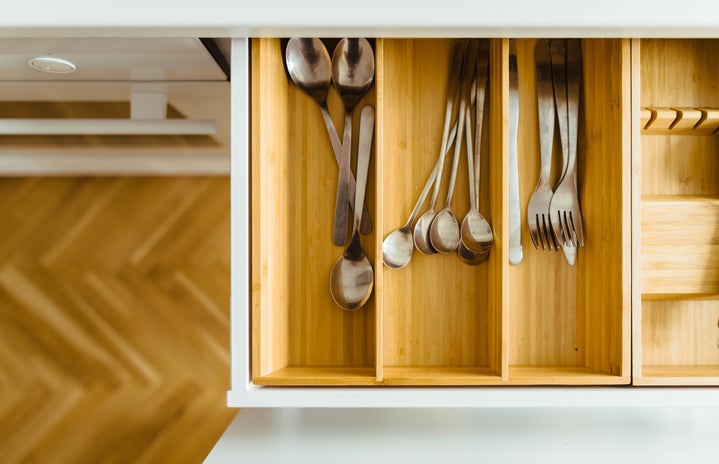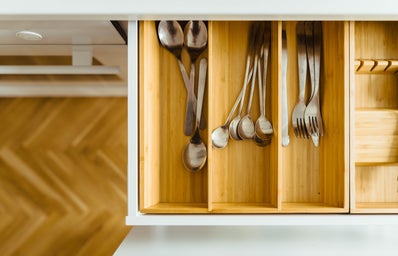Have you ever thought to yourself when you’re eating dinner “I wish I could eat literally everything in front of me right now”? Personally I feel generally full when I have my sweet and sour chicken enough to not want to eat the plate and cutlery, but when it comes to thinking about a sustainable future, perhaps biodegradable and edible products are the way to go. In over the last ten years, we’ve produced more plastic waste than we have during the whole of the last century. If that isn’t terrifying enough, plastic makes up about 90% of the trash found in oceans, which is about 46,000 pieces of plastic per square mile. It takes about 500-1,000 years for plastic to degrade, but during that time marine animals are being killed at staggering numbers annually and slowly killing us as more and more people are testing positive for the plastic chemical BPA. So, is there anything we can do about this? We can certainly start with the plastic we use when we eat our food. From the plate you’re eating on right down to the utensils, these companies are changing the way we eat our meals:
Edible Plates by Munch Bowls
After watching a video on facebook on the plates made from pressed leaves, I thought about whether there was an alternative option that was both biodegradable and that you could eat. Enter Munch Bowls, an edible wheat bowl with a shelf life of a year and even longer if stored in a cool dry place. The company started in Western Cape, South Africa in 2011 and has since won the Sial Innovations China Special Innovations Award. The company is still growing and now collects orders internationally. The website doesn’t show specific prices unless you contact them, and the reach is still pretty small, but I suspect some great things coming from Munch Bowls
Edible Cutlery by Bakeys
With plastic cutlery being a major contributor to pollution and covering our oceans and landfills, Bakeys from Hyderabad, India aims to fight back on pollution by having utensils that you can eat too. The cutlery is made from rice, wheat, and sorghum. Sorghum is an ancient grain originally from Africa that doesn’t get soggy in liquids and can be cultivated in semi-arid areas. The company has gained a lot of popularity since its establishment in 2010 and is now looking to reach more international markets and expand its product to chopsticks. You can order a package of 100 spoons for 300 Indian Rupees (about 6 CAD) that will take around a month to arrive.
Edible cups by Loliware
After their success in a jell-o competition, reaching their $10,000 goal on Kickstarter in January 2011, two Parsons School For Design Graduates launched Loliware in 2015, a biodegradable cup made of seaweed, organic sweeteners, and flavours and colours derived from fruits and vegetables. After their success on Shark Tank, Loliware has since gained popularity world wide and is now in the process of making future applications of Loliware technology, such as infusing the cups with dietary supplements or even towards more than just cups. You can buy the cups online for a pack of four for $15.99 which comes in flavours like Matcha Green Tea and Vanilla.
BONUS: Water Soluble Plastics by Avani Eco
Now you can eat the bags your groceries came in? Amazing! Avani Eco is a company that makes plastics out of cassava starch, making it biodegradable and edible. In a viral video you’ve probably seen on your facebook newsfeed, the creator of the bag is seen dissolving the plastic in a cup of water and drinking it. Avani Eco from Bali, Indonesia launched in 2014 to make plastic waste on the island a thing of the past. Though the company has been slow in establishing a market, Avani Eco has inspired the government to ban plastic bags in 2018. The company is aiming to make their bags out of more biodegradable materials such as algae and shrimp shells, and has since made more biodegradable products from straws to take away packages.


